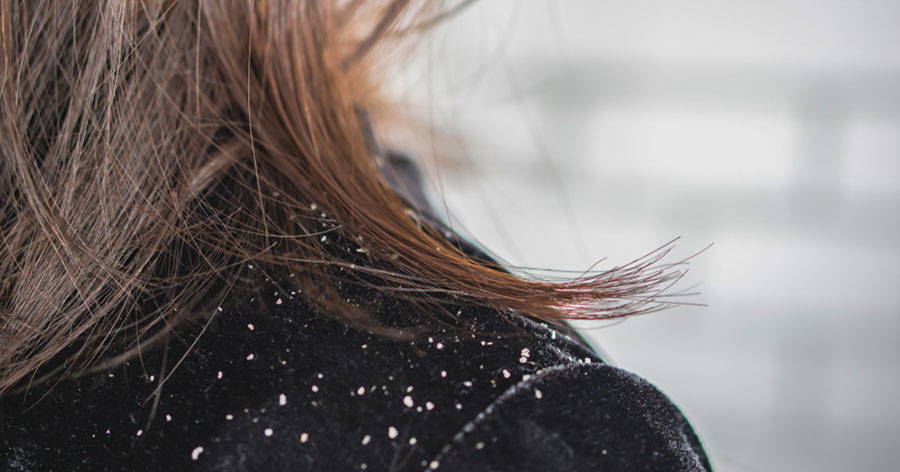What Is Dandruff?
If you have dandruff, you may notice large, oily flakes in your hair or on your scalp. Yellow or white in color, they may also be visible on your clothing. Other symptoms of dandruff to watch out for include an itchy scalp, oily skin, and red scaliness on your head.
The condition occurs when your scalp sheds more epidermal cells than usual. Typical causes of dandruff in adults include not shampooing enough, having oily skin, or skin that is too dry. You may also develop these types of flakes if you are sensitive to certain hair care products, have a skin condition like eczema or psoriasis, or develop a yeast-like fungus called Malassezia that feeds on oily scalps.
Young adults and middle-aged individuals are the most likely to have dandruff, although people of all ages can get it. It seems that men get the condition more often than women, so hormones may play a role in its development. If you are unsure whether you have dandruff, you can compare its symptoms to dry scalp.
What Is Dry Scalp?
In contrast to dandruff, a dry scalp may cause small, dry flakes to drop from the hair. However, you can still expect the same itchy head that dandruff is known for. To determine whether you have dry scalp, look for dry skin on other parts of your body. Your scalp will also be free of oily, red scaliness since this is a symptom of dandruff only.
When you have a dry scalp, your skin does not have enough oil for it to stay moisturized and lubricated. You may have a dry scalp if you wash your hair too much or have a skin condition like psoriasis or eczema. Other possible causes of dry scalp include having dandruff and spending too much time outside in cold or dry air.
Chronic dry scalp can be uncomfortable and cause frequent itching. The urge to scratch your head can result in abrasions or sores. If you think you have dry scalp, try to determine whether your environment, hair care habits, or a skin condition is causing the issue. You may also decide to talk to your doctor to see if medications or other health conditions could be contributing to your symptoms.

Do Laser Caps Really Work for Hair Loss?
What Gray Hair Says About Your Health